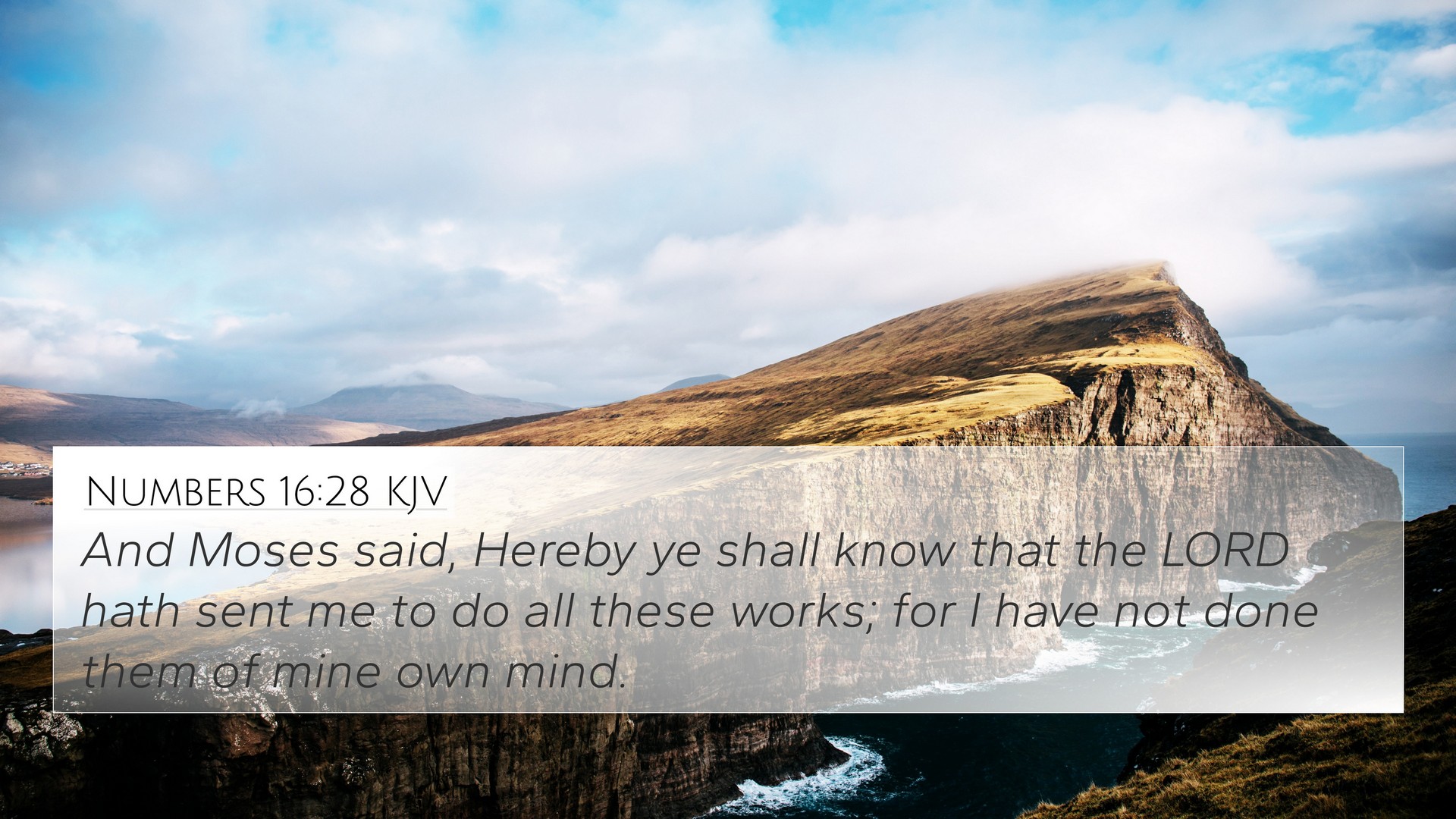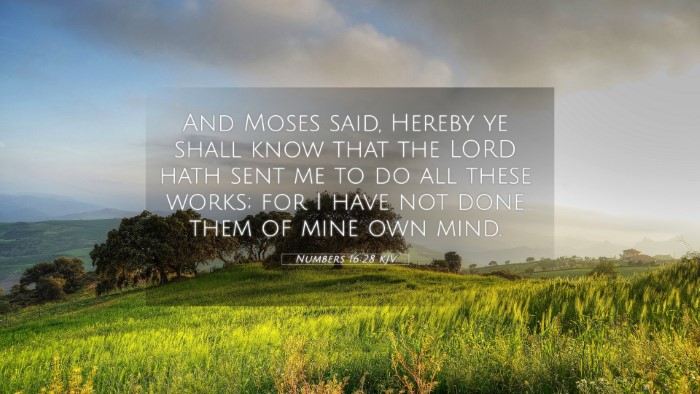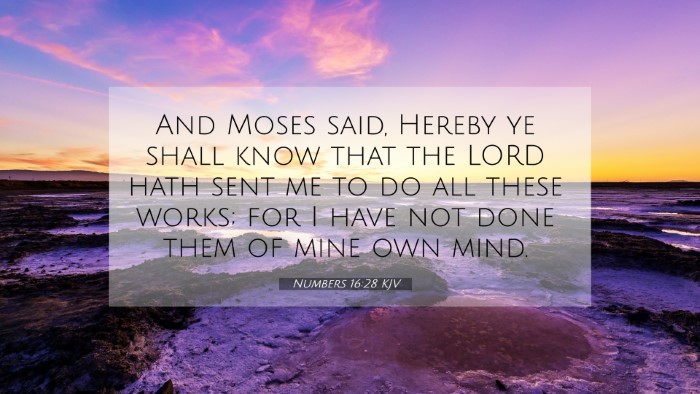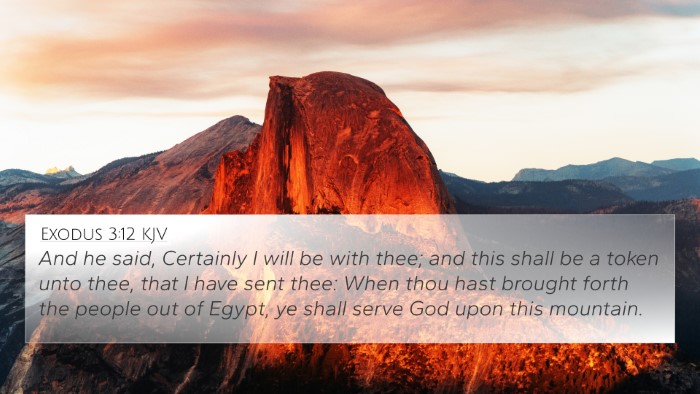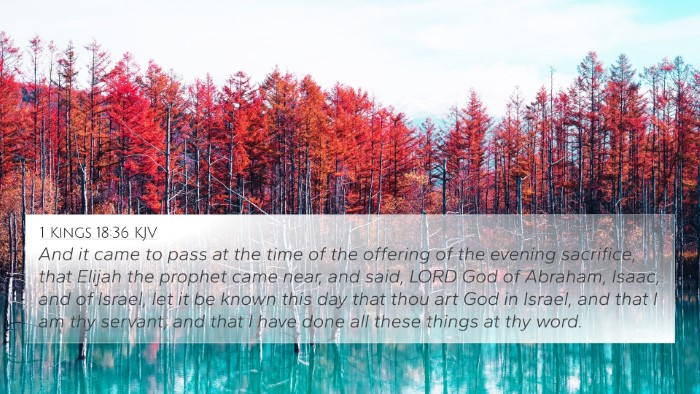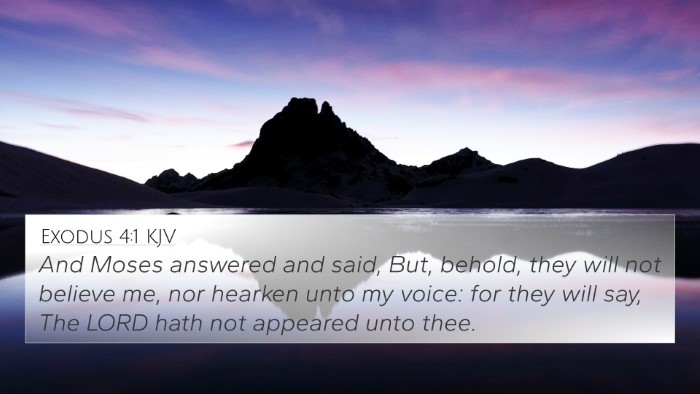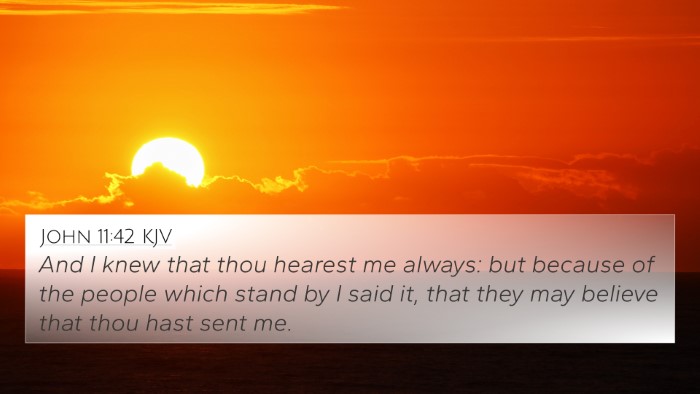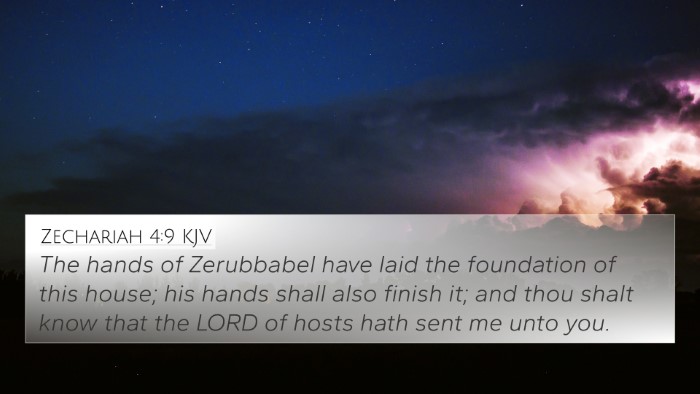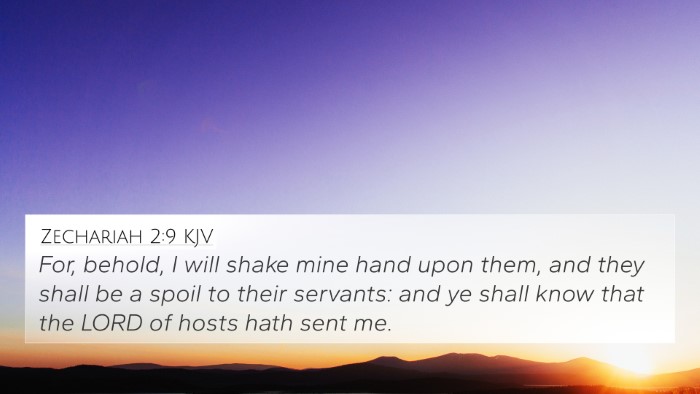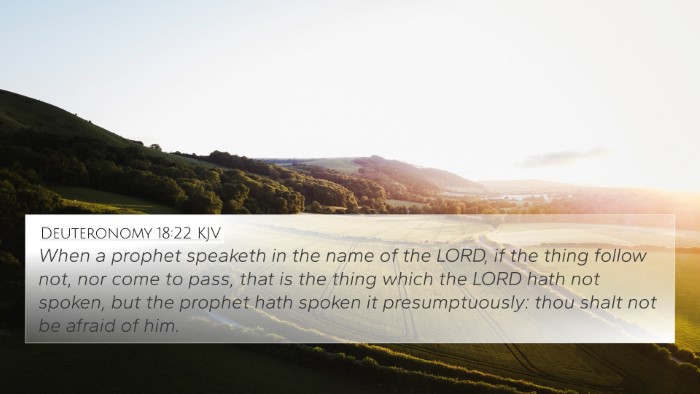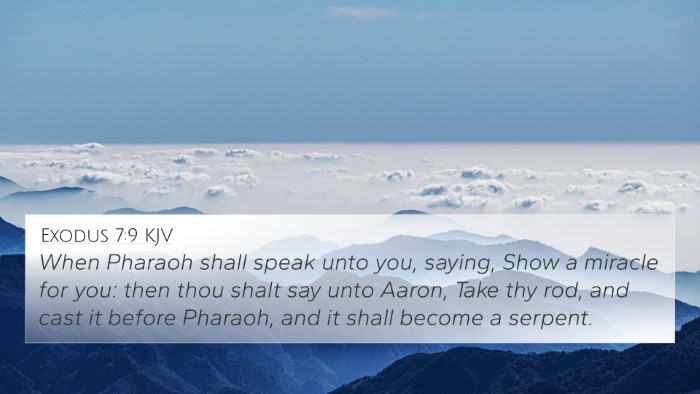Understanding Numbers 16:28
In the book of Numbers, chapter 16, verse 28, we find a pivotal moment in the narrative of Israel's journey through the wilderness. This verse presents a declaration made by Moses as he addresses the rebellion led by Korah and his followers against God's appointed leadership. The context of this verse holds significant meaning for understanding God's authority and the consequences of rebellion.
Verse Overview
Numbers 16:28 (KJV): "And Moses said, Hereby ye shall know that the LORD hath sent me to do all these works; for I have not done them of mine own mind."
Key Themes and Insights
- Divine Authority: This verse underscores the authority of God in establishing leadership among His people. Moses emphasizes that his actions are not from personal ambition but directed by God's command.
- Validation of Prophecy: Moses’s statement serves as a validation of his prophetic mission. It indicates that God is behind the actions he is taking, thereby distinguishing true prophets from false ones.
- Consequences of Rebellion: The backdrop of this proclamation is Korah's rebellion, an event marked by challenges to Moses's leadership, signaling grave consequences for those who rise against God's chosen representatives.
- Faith and Obedience: The verse serves as a reminder for the Israelites to recognize the importance of obedience to God's authority, as disregarding it leads to dire repercussions.
Public Domain Commentary Insights
Matthew Henry's Commentary
Matthew Henry emphasizes the importance of Moses’s statement as a testament to the divine mission he has been given. He argues that the distinction between true and false motives among leaders is critical, as Moses claims that his leadership and the actions taken are sanctioned by God alone.
Albert Barnes' Notes on the Bible
Albert Barnes elaborates on the significance of the phrase "of mine own mind." According to Barnes, this highlights the danger of self-appointed leaders who lack divine endorsement. Moses’s clear communication of his role is a call to the people to trust in God’s selection of leadership.
Adam Clarke's Commentary
Adam Clarke notes that Moses’ proclamation serves both as a defense against his critics and as a prophetic statement that implies judgment upon his challengers. Clarke argues that the acknowledgment of divine authority in leadership is essential for the spiritual health of the community.
Bible Cross-References
Here are some Bible verses that connect with Numbers 16:28, providing a broader context on authority, rebellion, and divine leadership:
- Exodus 3:10: God's command to Moses to lead the Israelites out of Egypt.
- Deuteronomy 18:18-19: The promise of a prophet like Moses whom God will raise up.
- Jeremiah 1:7-10: God's call to Jeremiah, demonstrating divine authority in appointing prophets.
- 1 Samuel 15:1-3: Samuel's first instruction from God to Saul, emphasizing obedience to God's commands.
- Hebrews 13:17: Encouragement to obey spiritual leaders as those who watch over souls, reminding of the weight of their responsibility.
- Matthew 7:15: Warning about false prophets, underscoring the necessity of discernment.
- Romans 13:1: A reminder that all authorities are instituted by God, emphasizing submission to divine order.
Connections Between Bible Verses
The connections between Numbers 16:28 and the aforementioned verses emphasize the underlying biblical principle of recognizing and submitting to divinely appointed authority. Understanding these connections enhances our comprehension of the text and provides a holistic perspective of God's governance throughout Scripture.
Thematic Bible Verse Connections
When conducting comparative Bible verse analysis, one can see thematic connections related to God's authority, leadership, and the adverse effects of rebellion. This inter-Biblical dialogue echoes throughout both the Old and New Testaments, prompting believers to reflect on their relationship with God's appointed leaders.
Tools for Bible Cross-Referencing
As readers explore these connections further, various tools are available for cross-referencing biblical texts. Using a Bible concordance or a cross-reference Bible study guide can help identify and navigate thematic links, thereby enriching one's study of the Scriptures.
Conclusion
Numbers 16:28 serves as a powerful reminder of God's sovereignty in leadership and the importance of recognizing divine authority. Through cross-referencing and exploring thematic connections in the Bible, believers are better equipped to understand the implications of rebellion and the necessity of submission to God's appointed structures. As one engages with the Scriptures, let this verse guide you in recognizing the vital role of God's calling and the importance of maintaining faith in His divine plan.
